Sikkim is a film of genre Documentary directed by Satyajit Ray with Satyajit Ray
Sikkim (1971)
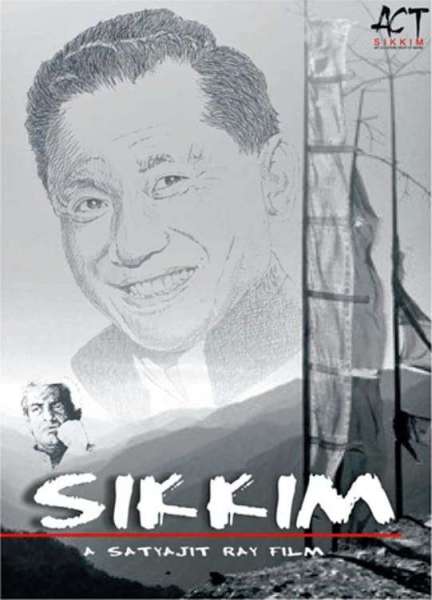
If you like this film, let us know!
Sikkim is a 1971 Indian documentary about the nation of Sikkim, directed by Satyajit Ray. The documentary was commissioned by the Chogyal (King) of Sikkim at a time when he felt the sovereignty of Sikkim was under threat from both China and India. Ray's documentary is about the sovereignty of Sikkim. The film was banned by the government of India, when Sikkim merged with India in 1975. In 2000, the copyright of the film was transferred to the Art and Culture Trust of Sikkim. The ban was finally lifted by the Ministry of External Affairs (MEA) in September 2010. In November 2010 the director of the Kolkata film festival stated that upon filming the documentary for the first time, he received an injunction from the court of Sikkim again banning the film.
Synopsis
Banni durant 30 ans, ce documentaire décrit la culture de l'ancien royaume de Sikkim, situé entre le Tibet et le Népal, et rattaché à l'Inde en 1975.Actors
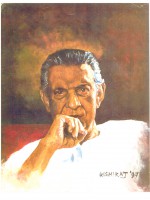
Satyajit Ray
(Narrator (voice))
Comments
Leave comment :
Suggestions of similar film to Sikkim
There are 3 films with the same actors, 38 films with the same director, 8959 with the same cinematographic genres, 7799 films with the same themes (including 893 films with the same 2 themes than Sikkim), to have finally 70 suggestions of similar films.If you liked Sikkim, you will probably like those similar films :

Distant Thunder (1973)
, 1h41Directed by Satyajit Ray
Origin Inde
Genres Drama
Themes Political films, Disaster films
Actors Soumitra Chatterjee, Babita, Bobita, Sandhya Roy
Rating78%





Le film se déroule durant la Seconde Guerre mondiale, au Bengale, au début de la grande famine de 1943.
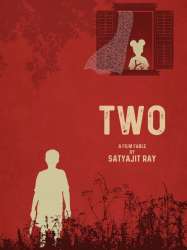
Two (1965)
, 15minutesDirected by Satyajit Ray
Genres Drama
Themes Political films
Rating79%





The film begins with a rich kid (Ravi Kiran) shown to be playing with his toys and enjoying the bottled soft drink. While playing, he overhears a sound and curiously overlooks the window to see a slum kid playing a flute. In order to show his toys, rich kid takes out his toy trumpet to make loud sound. Street kid then goes back to his hut and starts playing a small drum to which rich kid shows his battery-powered drum. When street kid comes out home-made mask and bow and arrow, rich kid wears various masks including one of a native villager and cowboy. Disappointed street kid returns to his hut and rich kid also goes back to play with his toys.

The Adversary (1970)
, 1h50Directed by Satyajit Ray
Genres Drama, Comedy-drama, Romance
Themes Politique, Political films
Actors Dhritiman Chatterjee, Debraj Ray, Biplab Chatterjee
Rating80%





Siddhartha (Dhritiman Chatterjee) is forced to discontinue his medical studies due to unexpected and brutal death of his father. He has to now find a job in stead. In one job interview, he is asked to name the most significant world event in the last ten years. His reply is 'the plain human courage shown by the people of Vietnam', instead of the expected - man landing on moon. The interviewer asks is he is a communist. Needles to say that he does not get the job.

Rabindranath Tagore (1961)
, 54minutesDirected by Satyajit Ray
Genres Biography, Documentary, Historical
Themes Films about writers, Documentaire sur une personnalité
Actors Satyajit Ray
Rating71%





Narrated by Satyajit Ray, the film begins with the funeral procession of Rabindranath Tagore. Briefly mentioning about Kolkata, then known as "Calcutta", the documentary explains the Tagore lineage, starting with Dwarkanath Tagore. While documentary mentions Dwarkanath Tagore's elder son Debendranath Tagore's association with an Indian religious, social, and educational reformer Raja Rammohun Roy and introduces some of his children out of fourteen, it moves to the birth of child Rabindranath Tagore, fondly called as "Robi". The film then narrates Robi's initial schooling days, his trip to northern India with his father, publication of his first poem in his father's magazine and his failed attempt for higher education at London.

The Inner Eye (1972)
, 20minutesDirected by Satyajit Ray
Genres Documentary
Themes Documentary films about the visual arts, Documentaire sur une personnalité, Films about disabilities
Actors Satyajit Ray
Rating72%





The documentary begins by showcasing a process by which a wall, 5 feet (1.5 m) high by 60 feet (18 m) wide, of a newly developed building in Santiniketan would be decorated by 20 murals designed by Benode Behari Mukherjee. While the narrator (Satyajit Ray) describes Mukherjee's family, Mukherjee himself explains the process of mural making and how he spends most of his time alone in Santiniketan with his favourite drink, tea. Mukherjee, the youngest child of his family among six children, is shown spending his initial days as a student in Santiniketan with his drawings and paintings. He was a student of Nandalal Bose, another acclaimed painter from Santiniketan. The film mentions Bose's influence of Mukherjee's initial work with his own "striking" originality.

Bala (1976)
, 33minutesDirected by Satyajit Ray
Genres Documentary
Themes Dance films, Films about music and musicians, Documentary films about music and musicians, Documentaire sur une personnalité, Musical films
Actors Satyajit Ray
Rating67%





The film begins with the introduction of Bharata Natyam since its inception. It also explains the various hand gestures, known as Mudra and Bala demonstrates one of them, "Mayura Mudra" ("Peacock Mudra"). Narrated by Satyajit Ray, the film describes Bala's lineage and her debut performance in 1925, at the age of seven, at Kancheepuram at the Kamakshi Amman Temple. A noted Sanskrit scholar and musicologist explains Bala's dancing style and an Indian dancer, Uday Shankar mentions about his association with Bala.
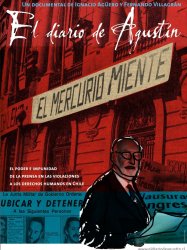
El diario de Agustín (2008)
, 1h20Genres Documentary
Themes Seafaring films, Transport films, Documentary films about law, Documentaire sur une personnalité, Documentary films about politics, Political films, Films about Latin American military dictatorships
Rating75%





Journalism students start an investigation about the editorial line of El Mercurio S.A.P., a media corporation owned by Agustín Edwards Eastman that publishes Chilean daily newspapers El Mercurio, La Segunda, and Las Últimas Noticias.
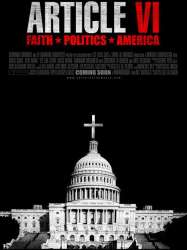
Article VI (2008)
, 1h30Origin USA
Genres Documentary
Themes Films about religion, Documentary films about historical events, Documentary films about politics, Documentary films about religion, Political films
The story follows filmmaker Bryan Hall's experience as a Mormon during the 2008 Presidential race. While following the debates, Hall becomes increasingly aware of the escalating attacks against a particular candidate over his religion: Mitt Romney, who happens to also be a Mormon. Hall decides to investigate this issue and comes to realize that the issue of religious bigotry in politics goes far beyond his own faith. It has been the subject of intense argument from the earliest days of the American colonies. In the end, Hall makes the case for the need for religious tolerance in America; not just for his religion, but for all religions.

As We Forgive (2008)
Genres Documentary
Themes Films set in Africa, Films about racism, Documentary films about racism, Documentary films about law, Documentary films about war, Documentary films about historical events, Documentaire sur une personnalité, Documentary films about politics, Political films
The film tells the story of two Rwandan women who come face-to-face with the neighbors who slaughtered their families during the 1994 genocide, and their personal journeys toward forgiveness. Featuring in-depth interviews with both survivors and murderers, As We Forgive provides an intimate, first-hand view of the encounters between genocide perpetrators and their victims’ families.

The Door of Ceuta (2008)
, 1h50Origin Portugal
Genres Documentary
Themes Films about immigration, Documentary films about politics, Political films
Rating71%





Beginning with the 2005 violence at the Melilla and Ceuta border fences, Bab Sebta interviews people in four North African cities to explore why some people are willing to risk all to emigrate to Europe. Interviews took place in Tangier and Oujda in Morocco, and Nouadhibou and Nouakchott in Mauritania.
 Connection
Connection